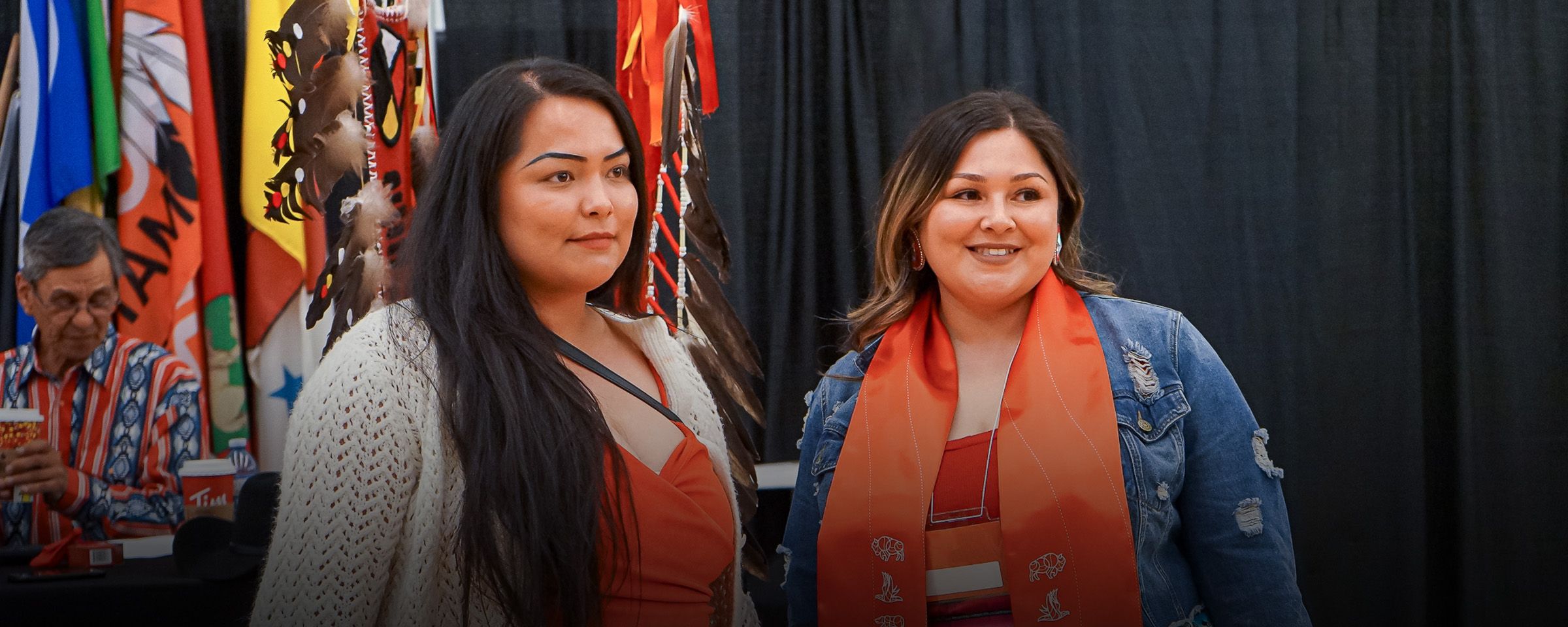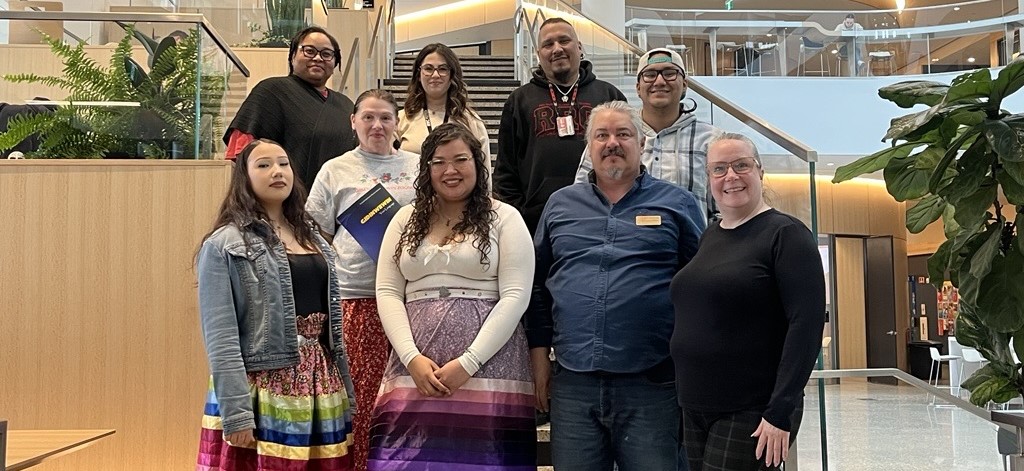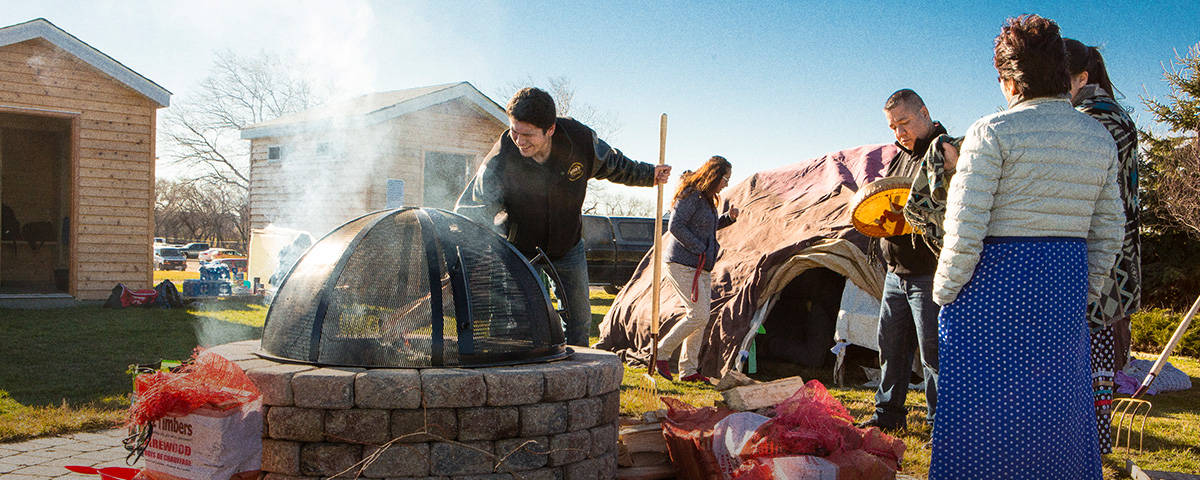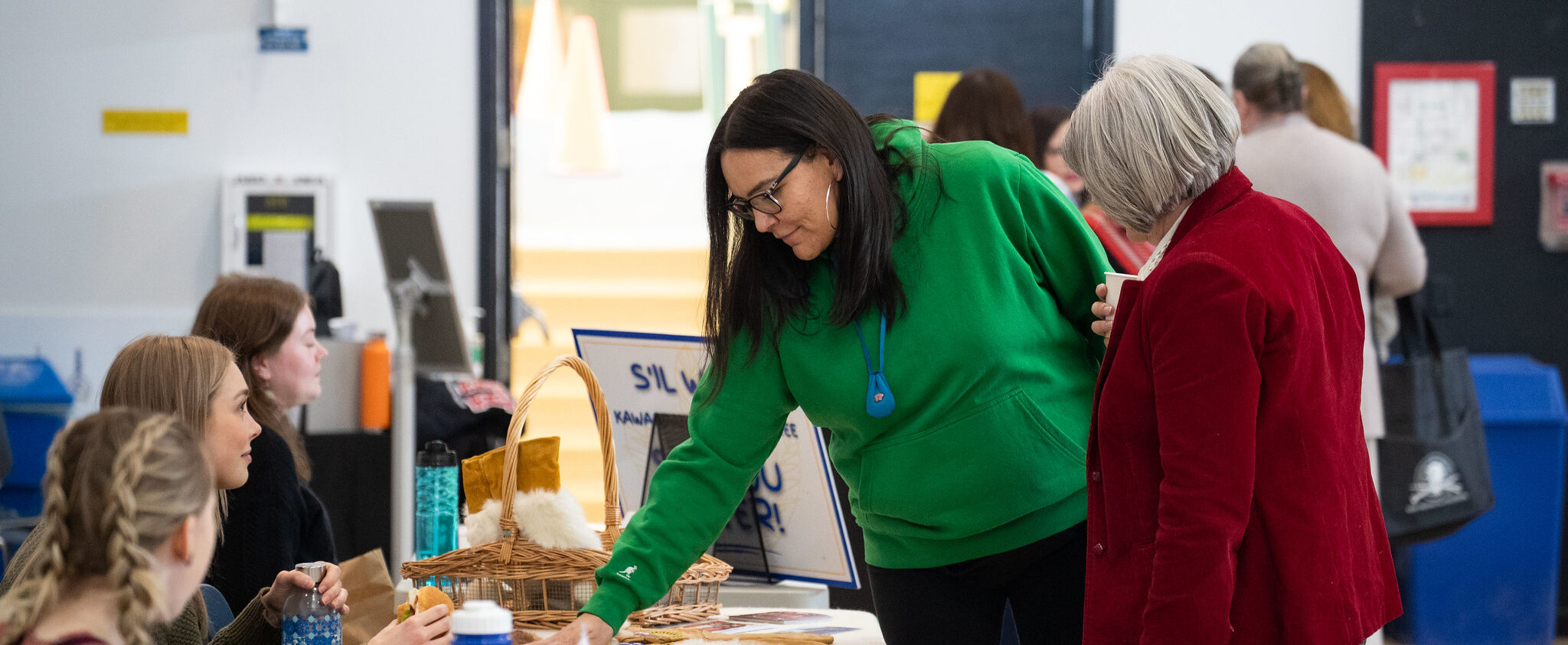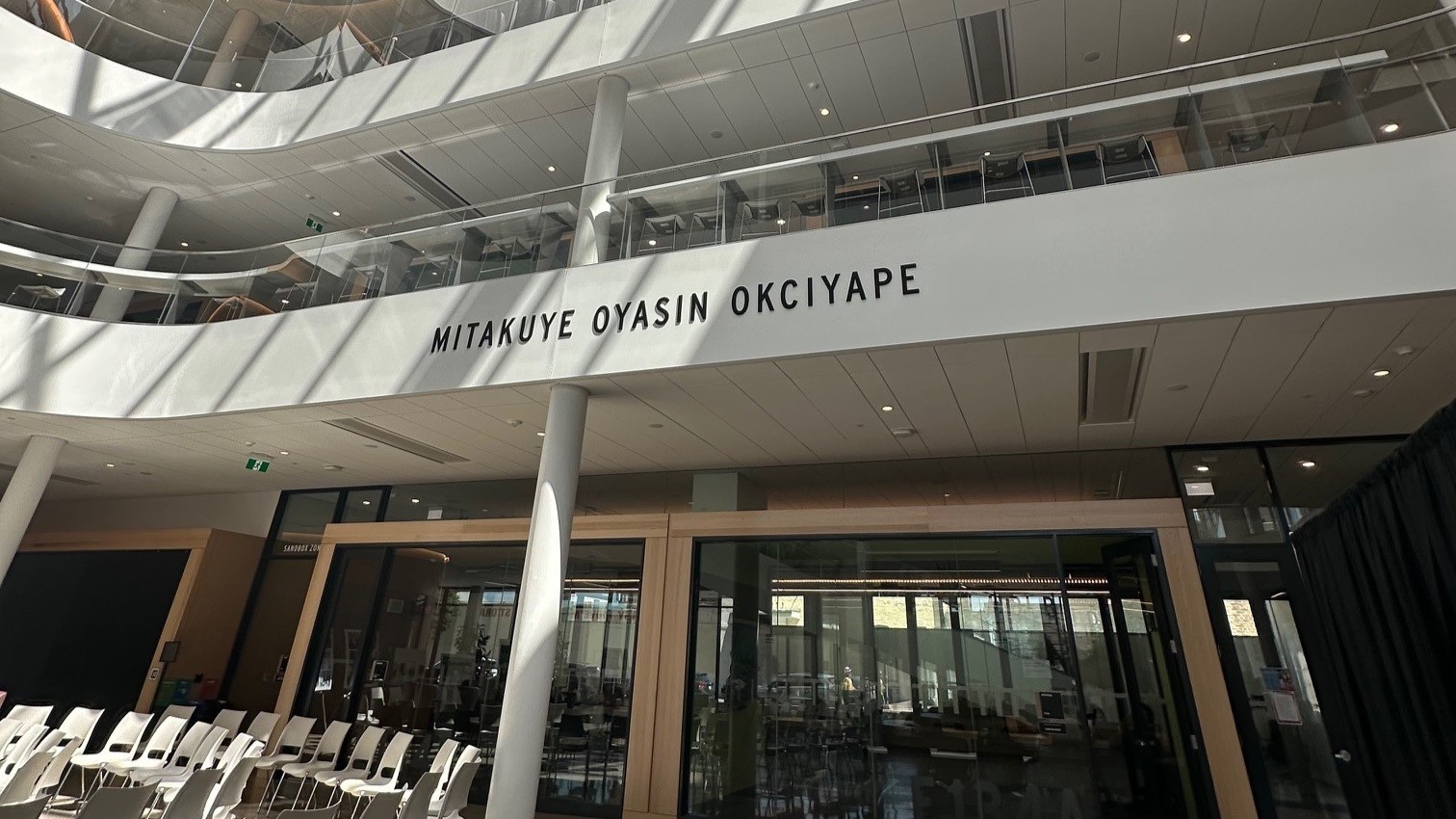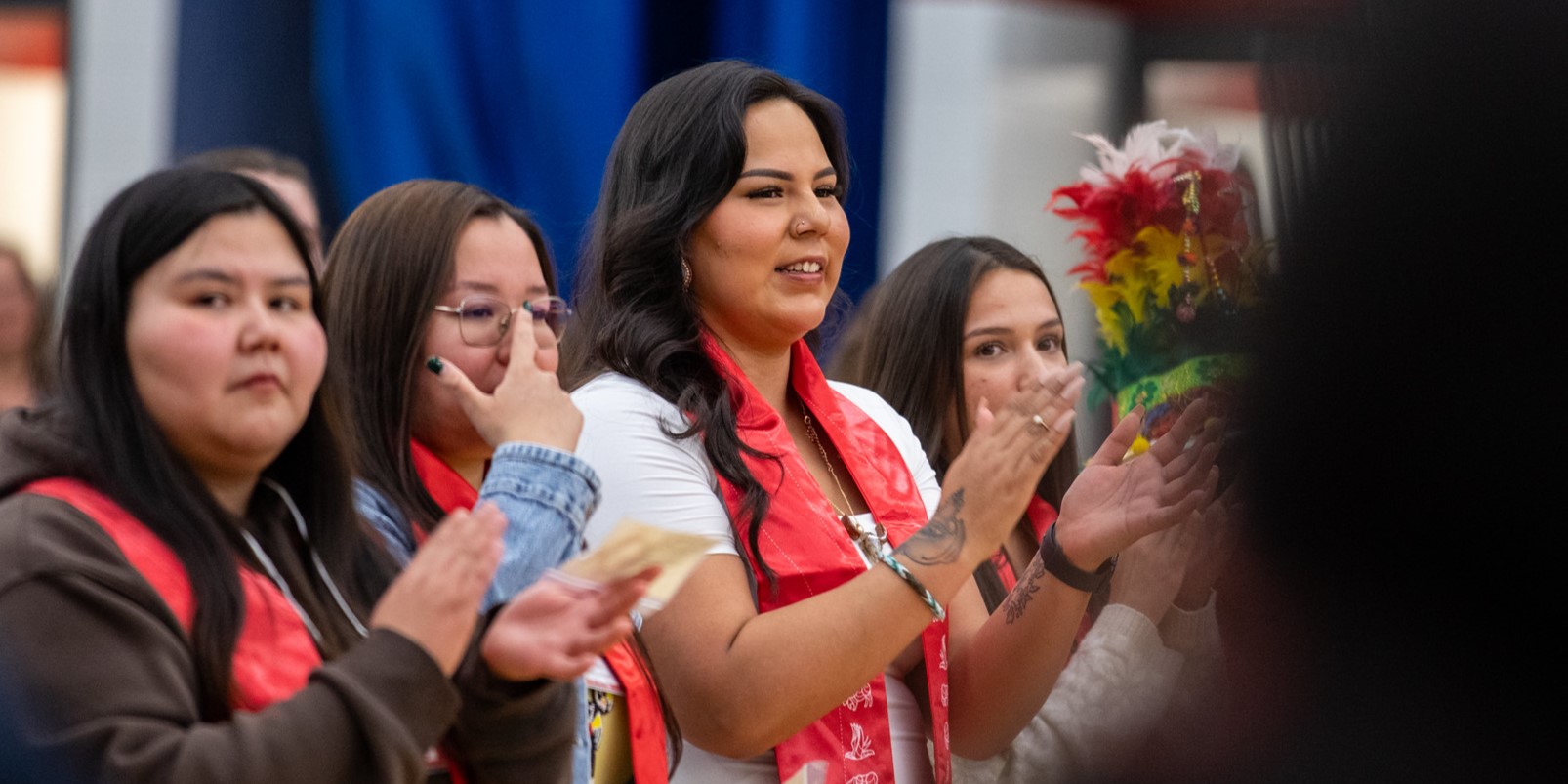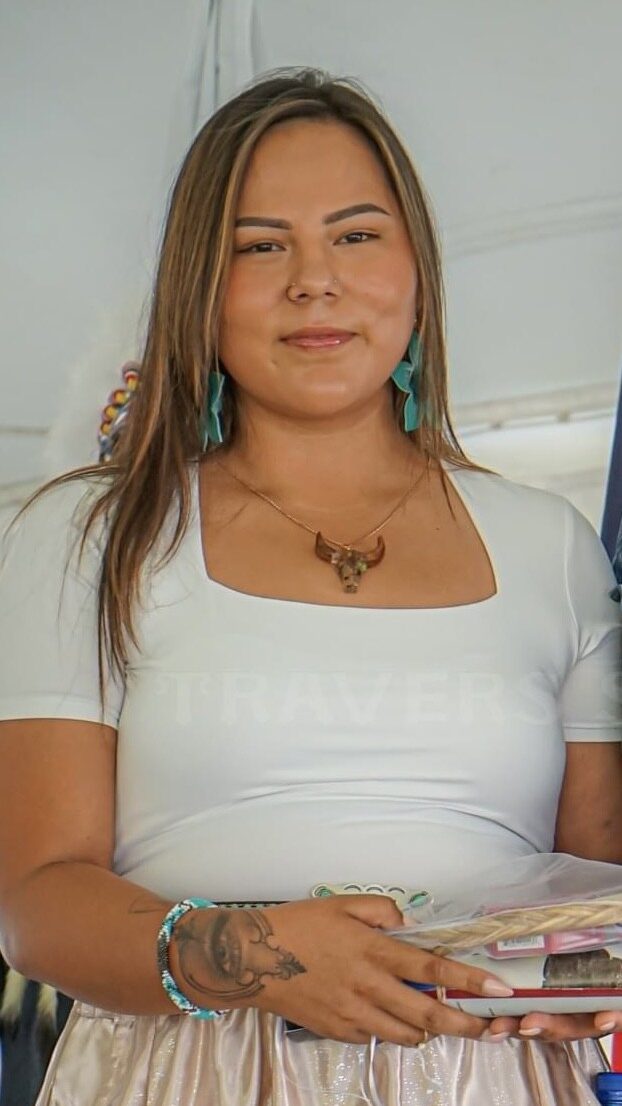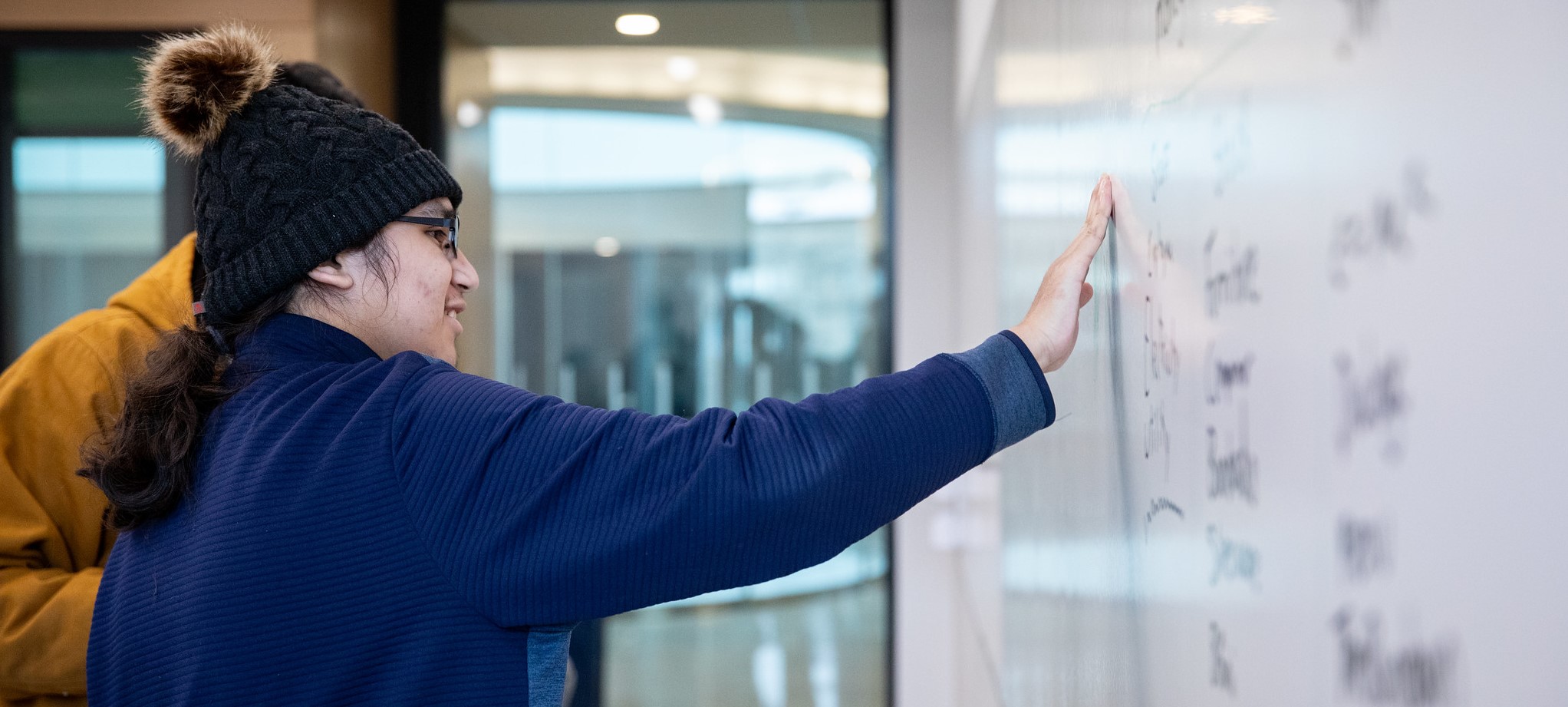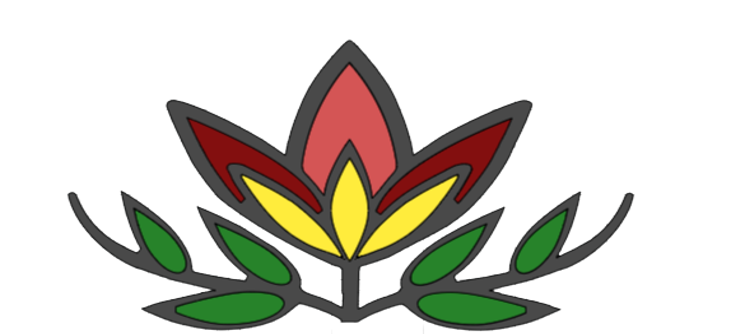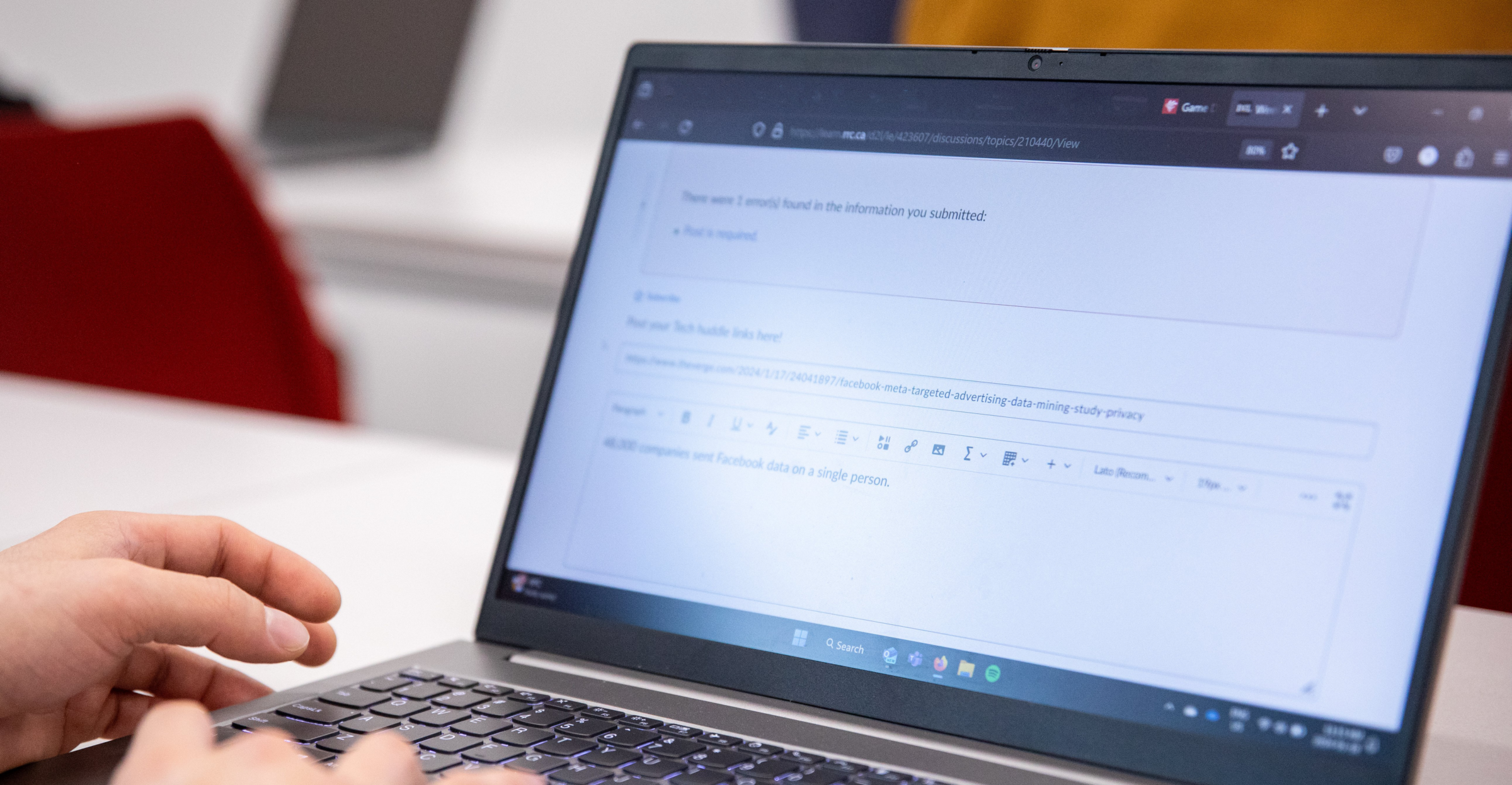Speaking Life into Language: Second Level Anishinaabemowin Courses Build Fluency, Confidence, and Connection
At RRC Polytech, a new chapter in Indigenous language revitalization is underway.
This past spring, after two years of offering Introduction to Anishinaabemowin at no cost to students thanks to the generous support of CWB Financial Group, the Polytech launched its first delivery of Conversational Anishinaabemowin. The second-level course builds on the vocabulary and structure taught in the introductory class and moves learners toward greater fluency and comfort holding small conversations in Anishinaabemowin.
Eighteen students enrolled in the pilot session to transform memorized phrases into deeper understanding and meaningful interactions. Instructor Corey Whitford, who also teaches the introductory class, designed Conversational Anishinaabemowin to push students beyond repetition by immersing them in storytelling, language logic, and grammar patterns that don’t follow English conventions.
“One of the most important things we’re doing here is planting seeds,” says Whitford. “You can’t approach Anishinaabemowin the way you would a colonial language. The structure, the sound, even the philosophy behind it is different. It’s not just about translating words. It’s about learning how to think and speak in a completely different way.”
The course curriculum is grounded in Gidinwewin: Your Language by Roger Roulette, a comprehensive 174-page resource that guides students through sentence building, verb usage, and question formulation. The textbook includes a CD to help with pronunciation – an essential tool for a language where tone and syllable emphasis can change a word’s meaning entirely.
Students also received a supplemental guide created by Whitford called Coyote’s Notes, a quick-reference companion filled with essential phrases from each module.
But learning doesn’t stop at the page. Whitford brought lessons to life through interactive activities, like language-based poker games and Kookum Says – a version of Simon Says where students follow commands in Anishinaabemowin. These activities reinforce vocabulary and make the language fun, practical, and social.
For many students, language learning is about more than communication – it’s a deeply personal journey of reclamation and reconnection. Teddy Lands says that she can see regional differences between learning the Conversational Anishinaabemowin and the language she’s heard at home in Ontario.
“I really appreciated that this course offered more learning rooted in ‘you, us, we,’ those foundational conversation pieces. Even when I’ve asked my parents about certain words, I’ve noticed that the ways things are said in Ontario can be completely different. It reminded me how easily our language can be lost, especially since we don’t have many fluent speakers anymore,” says Lands.
Lands, who has a strong interest in policy, emphasized the importance of having fluent language speakers who can interpret and communicate policies in ways that are meaningful and accessible to Indigenous communities. She believes that incorporating Indigenous languages into formal and institutional spaces represents a meaningful step toward reconciliation. She says she hopes to see more immersive and advanced courses in the future – and perhaps even policy written in Anishinaabemowin someday.
“My mom and I were at a conference once, and one of the speakers said that language and culture aren’t connected. That really frustrated her. So much of our culture – how we speak to children, to elders, how we interact with each other – is rooted in the language. A lot of our cultural norms and practices come from it. Those that practice Midewiwin, for example, are held in such high regard in Anishinaabe culture because they’re Ceremonial Keepers, and their strength in the language comes from how they live the culture.”
For Boogie Mann, the course has been equally transformative.
“Taking the Intro first really helped me get the hang of pronunciation and seeing word patterns,” he says. “With Conversational, I was able to practice every night with the CD. Even just a little bit a day – planting that info in the brain – it really adds up.”
He’s already seeing the benefits ripple outward.
“I set up an online server for a small learning community to create a network of learners. And I’ve started teaching my four-year-old some words. She’s getting pretty good.”
Mann, who grew up hearing bits of the language in Lake Manitoba, says learning with Whitford has been a journey of self-discovery. He says that Whitford’s teaching style encourages deep personal reflection and helps students connect with their identity beyond just learning words. He’s looking forward to the third-level course and hopes it will include more immersive experiences and cultural teachings, which he says is essential to grounding learners in their heritage.
Both students pointed to the broader implications of Indigenous language resurgence: from community to post-secondary education, fluency in Anishinaabemowin strengthens cultural identity and builds resilience.
Lands envisions a future where immersion courses are common, where students can take an entire degree in their language, and where institutions like RRC Polytech have dedicated spaces like language rooms, Indigenous libraries, and cultural hubs where Indigenous languages are front-and-centre for students to explore their identities through language.
To register for Conversational Anishinaabemowin at no cost, visit the Course page. Chi-miigwech to CWB Financial for sponsoring Introduction to Anishinaabemowin and Conversational Anishinaabemowin and making language education accessible to the next generation of learners.

